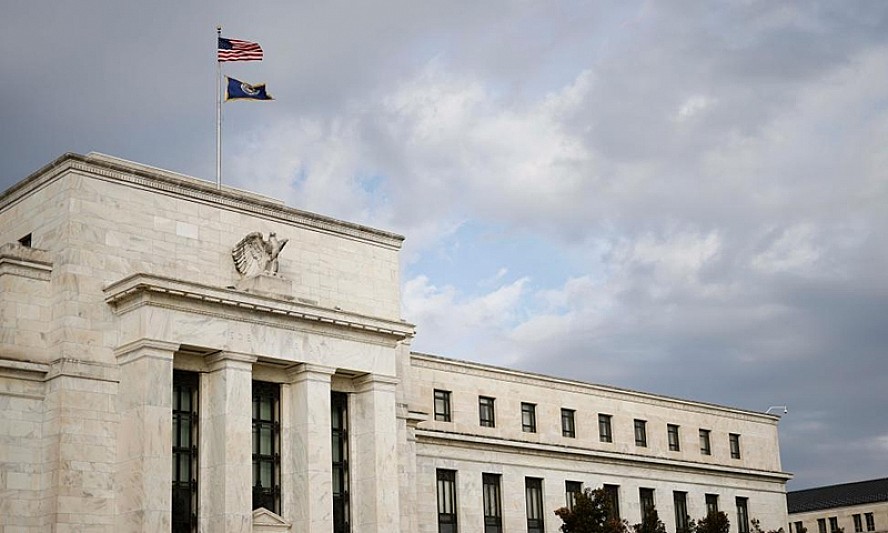Fed Scraps Notification Requirements for Crypto Activities
25.04.2025 7:00 1 min. read Kosta Gushterov
In a major policy shift, the Federal Reserve announced on Thursday that it will no longer require state-chartered member banks to notify the central bank before engaging in crypto-asset activities.
Previously, banks had to submit advance notice of plans to deal in digital assets. The Fed now says it will simply monitor these activities through its usual supervisory process, removing a major regulatory hurdle.
Dollar Token and Stablecoin Oversight Also Rolled Back
Alongside this move, the Fed also canceled its 2023 guidance that forced banks to obtain formal non-objection letters before offering services tied to dollar-backed tokens or stablecoins. The rollback gives banks more flexibility to experiment with digital dollar services, a growing sector that has faced heavy scrutiny in recent years.
In coordination with the FDIC and OCC, the Fed also withdrew two joint statements from 2023 that warned banks about crypto-related risks. The agencies say these changes reflect evolving market conditions and a renewed commitment to fostering innovation. While the Fed may issue updated rules in the future, it emphasized that current steps aim to create a more adaptable and innovation-friendly banking environment—especially in the digital asset space.
-
1
Federal Reserve Clears Path for Banks to Enter Crypto Market
24.06.2025 8:00 2 min. read -
2
Vietnam Charts a Clear Course for Digital Assets With New 2026 Law
16.06.2025 18:00 1 min. read -
3
GENIUS Act Clears Senate, Setting Stage for First U.S. Crypto Law
18.06.2025 12:00 1 min. read -
4
Coinbase and Set Gemini to Expand in EU Under MiCA Rules
17.06.2025 13:00 2 min. read -
5
U.S. Senate Moves Closer to Passing Landmark Stablecoin Legislation
17.06.2025 10:00 1 min. read
SEC Chairman With Important Comments on Regulation, Crypto, and Trading
U.S. Securities and Exchange Commission (SEC) Chairman Paul Atkins has emphasized the agency’s continued focus on investor protection, addressing insider trading, market manipulation, and the evolving landscape of cryptocurrency regulation.
Arizona Governor Vetoes Bill, Related to State Crypto Reserve Fund: Here Is Why
Arizona Governor Katie Hobbs has officially vetoed House Bill 2324, a legislative proposal that aimed to create a state-managed reserve fund for holding seized cryptocurrency assets.
SEC Explores New Fast-Track Process for Token-Based ETFs
The U.S. Securities and Exchange Commission (SEC) is in the early stages of developing a standardized listing framework for token-based exchange-traded funds (ETFs), according to a July 1 report by journalist Eleanor Terrett.
SEC Approves Grayscale ETF Tracking Top Five Cryptocurrencies
The U.S. Securities and Exchange Commission (SEC) has officially approved the conversion of the Grayscale Digital Large Cap Fund into an exchange-traded fund (ETF), finalizing its transition from an over-the-counter product into a fully regulated ETF structure.
-
1
Federal Reserve Clears Path for Banks to Enter Crypto Market
24.06.2025 8:00 2 min. read -
2
Vietnam Charts a Clear Course for Digital Assets With New 2026 Law
16.06.2025 18:00 1 min. read -
3
GENIUS Act Clears Senate, Setting Stage for First U.S. Crypto Law
18.06.2025 12:00 1 min. read -
4
Coinbase and Set Gemini to Expand in EU Under MiCA Rules
17.06.2025 13:00 2 min. read -
5
U.S. Senate Moves Closer to Passing Landmark Stablecoin Legislation
17.06.2025 10:00 1 min. read


